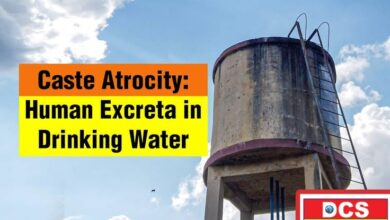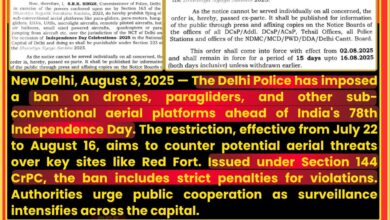
In a recent judgment that has significant implications for the registration of caste organisations in Tamil Nadu, the Madras High Court has given the state government a strict seven-day deadline to respond to a pending issue. Justice D Bharatha Chakravarthy has set the deadline at March 14, stating that if the Tamil Nadu government fails to submit its stand within this timeframe, he will proceed to pass orders on the matter without further delay. This decisive move by the High Court underscores its commitment to enforcing transparency and accountability in the registration process of caste-based bodies.
Background of the Issue
The case revolves around the regulation and registration of caste organisations in Tamil Nadu, which has been a contentious subject. The registration process is governed by legal norms that ensure these organisations operate within the bounds of the law. However, concerns have been raised regarding compliance and the authenticity of the registration procedures followed by some of these organisations.
Registration Discrepancies:
Critics argue that several caste organisations in Tamil Nadu may not have properly registered with the appropriate authorities, raising questions about their legitimacy and the potential misuse of their influence in political and social contexts.
Legal and Social Implications:
The issue is not merely administrative; it carries significant implications for social justice and the equitable distribution of resources. Proper registration is crucial for ensuring that caste organisations contribute positively to society and adhere to the regulatory framework designed to protect public interest.
The Court’s Ruling and Its Significance
In its recent ruling, the Madras High Court has taken a firm stance by demanding a prompt response from the Tamil Nadu government. Justice D Bharatha Chakravarthy has emphasized that the court cannot indefinitely delay action on this critical matter. The seven-day deadline is intended to compel the government to clarify its position and take necessary steps to address any irregularities in the registration process.
Strict Deadline:
Setting the deadline for March 14 sends a clear message that the court expects swift action. This time-bound directive is designed to prevent further delays and ensure that the matter is resolved expeditiously.
Consequences of Non-Compliance:
The judge warned that if the state fails to submit its stand within the stipulated period, he will proceed to pass orders on the issue. This underscores the seriousness with which the court views the registration process and the need for immediate remedial action.
Reactions from Stakeholders
The ruling has elicited varied responses from different quarters:
Government Reaction:
While the Tamil Nadu government has not yet publicly detailed its response, officials are expected to expedite their review of the registration procedures. This move is seen as an opportunity to reinforce the legitimacy of caste organisations and to address any administrative shortcomings.
Civil Society and Activists:
Advocates for transparency and social justice have welcomed the court’s decision, viewing it as a necessary step toward ensuring that caste organisations are held to proper legal standards. They stress that clear, timely action is essential to uphold public trust in the regulatory framework.
Legal Experts’ Views:
Legal analysts have noted that the court’s directive is a significant development in the broader context of administrative reforms. The decision reinforces the principle that government agencies must adhere to deadlines and be accountable for lapses in regulatory oversight.
Implications for Policy and Governance
This ruling could have long-lasting effects on how caste organisations are regulated in Tamil Nadu. A favorable response from the government may lead to:
Enhanced Registration Processes:
Reforms in the registration process to ensure that all caste organisations comply with legal standards, thereby promoting transparency and accountability.
Policy Revisions:
The state may need to re-evaluate its policies regarding caste organisations, potentially leading to stricter guidelines and more robust oversight mechanisms.
Strengthened Governance:
Overall, this intervention by the Madras High Court is expected to enhance the governance of social organizations, ensuring that they operate in a manner that benefits society as a whole.
Conclusion: A Step Towards Greater Accountability
The directive from the Madras High Court, which gives the Tamil Nadu government seven days to respond on the issue of caste organisations registration, marks a pivotal moment in the ongoing effort to enforce administrative accountability. With a firm deadline set by Justice D Bharatha Chakravarthy, the court has underscored the urgency of addressing potential discrepancies in the registration process. As the state gears up to submit its stand, this ruling is expected to drive meaningful reforms and contribute to a more transparent and effective regulatory framework.










